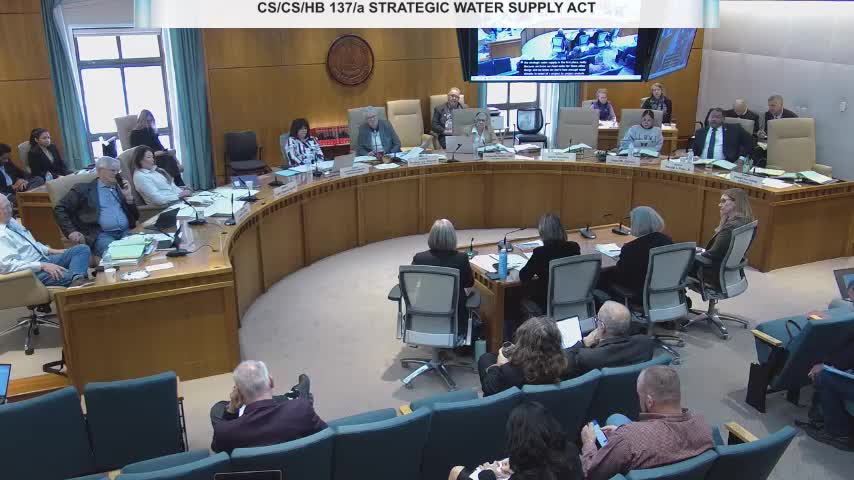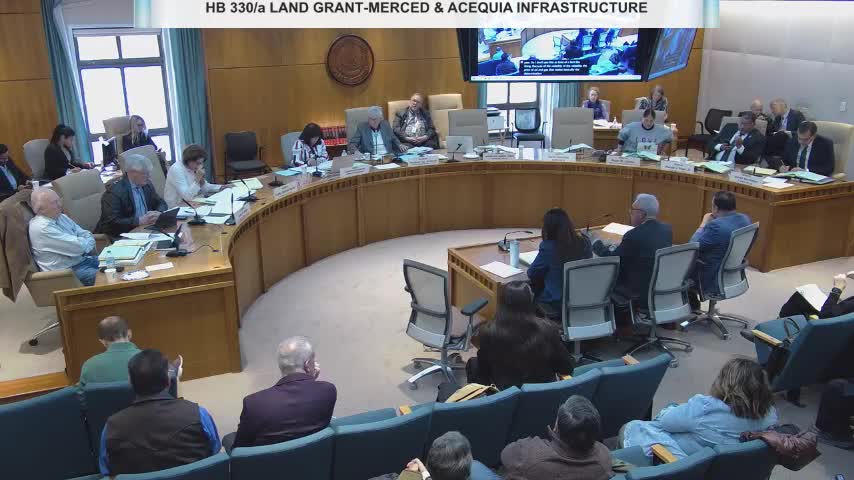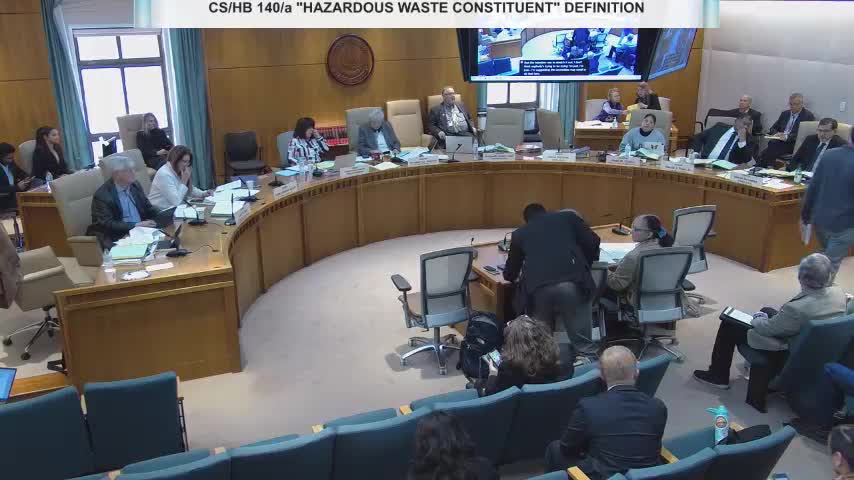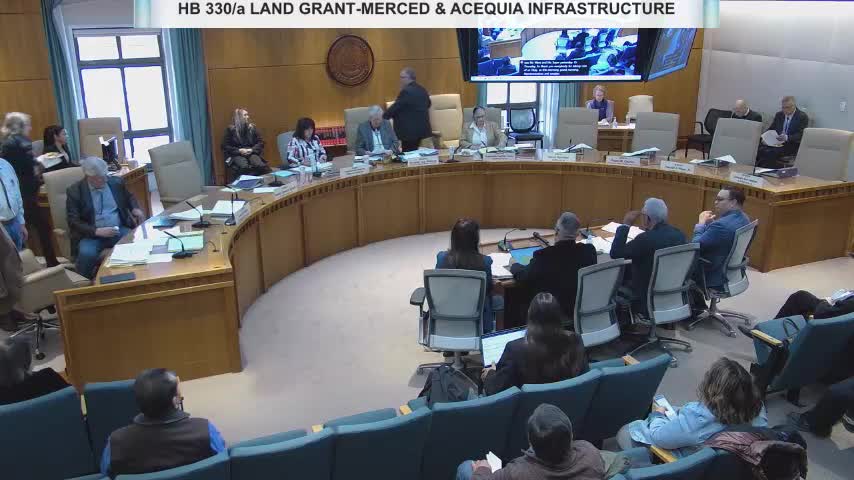Article not found
This article is no longer available. But don't worry—we've gathered other articles that discuss the same topic.

Committee hears PFAS cleanup bill focused on discarded firefighting foams; sponsors plan technical followup

Senate panel advances Strategic Water Supply Act to fund brackish-water projects and aquifer mapping

Senate hears PowerUp New Mexico plan to modernize distribution grid; amendment tying PRC deadlines fails 4-4

